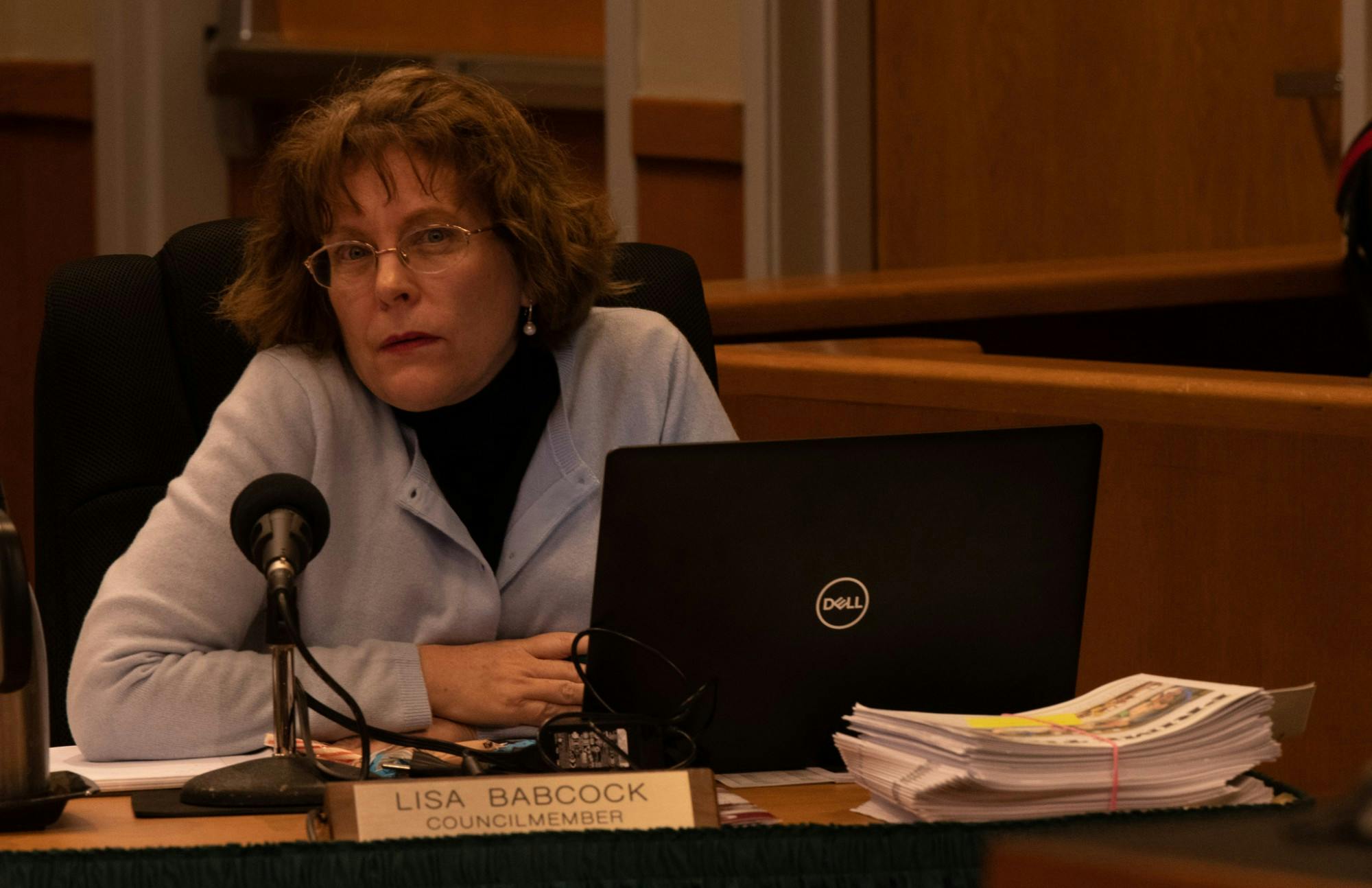On Thursday, Oct. 21, East Lansing City Council member Lisa Babcock hosted a town hall for her constituents to talk about issues of water damage that occurred as a result of the heavy rains in June, August and September. Many of the constituents asked questions about the city’s sewage infrastructure.
Babcock held the event at the East Lansing Public Library with City Manager George Lahanas and William Haggard of plumbing and heating, to answer questions from East Lansing residents.
Babcock held the event because she was receiving a lot of questions from residents about plumbing and what the city was going to do about flooding in the future. She invited Haggard to the event so he could give more specific answers for what residents could do to protect their homes.
A key piece of plumbing that residents can install in their housing is a check valve, which will prevent water from flowing backward and in turn can prevent flooding. Lahanas said that there are discussions among the city council to approve money from the recently passed American Rescue Plan Act, or ARPA, to help split costs for all residents in East Lansing installing a check valve.
“We’re asking to dedicate half-a-million dollars in grants to homeowners, so people could have a split, and what we’re recommending is a splitting of some homeowner money some city money to be able to put check valves everywhere that is problematic for people,” Lahanas said.
For residents who have since installed a check valve into their homes since the heavy rains and flooding of this past summer, Lahanas said documentation of the installing should be kept so they can give it to the city if they are able to approve the grants.
Haggard said that the typical cost of a check valve installation is around $2,500.
Many of the residents who attended the town hall talked about the flooding in their homes.
Paul Mulvey said that after the Aug. 12 storm, his basement had 80,000 gallons of water in it once a window burst open from the water pressure. He said he believes one of the causes for the water being outside of his window is because his street has only one storm drain installed.
“I don’t know, it just seems like it’s a disaster waiting to happen again,” Mulvey said.
Mulvey said he and his partner have been out of their house since the flooding because it was deemed unsafe due to electrical damage. Since then, they have been staying at a hotel with their two dogs.
Associate Professor of German and Second Language Studies Senta Goertler said she lives right on the edge of East Lansing and Meridian Township and is on East Lansing sewage. Her neighbors, who are Meridian Township residents, have had waist-high flooding in their basement.
Goertler said her neighbors were left trying to get either East Lansing or Meridian to help them with their flooding issues, and to get the sewage out of their basement. She said she and her neighbors realized that East Lansing does not have their neighborhood on the maps of the sewage system.
“I’m just hoping that maybe you could figure out what happened and prevent it from happening in the future,” Goertler said. “We’re not trying to blame, we’re really just trying to make sure that we don’t have sewer in our basement again.”
Toward the end of the meeting, Babcock offered her condolences to the residents who experienced flooding.
“I will say, I am genuinely sorry. I know that people throughout city hall, the other council members, are genuinely sorry,” Babcock said. “As one of my favorite bosses used to say, crisis is a terrible thing to waste. When we find out what happened, obviously then what do we do next and what do we do to prevent something from happening in April when we’ve got snowmelt and heavy rain.”
The city council will hold a meeting where they will discuss sewage infrastructure on Tuesday, Nov. 16.
Support student media!
Please consider donating to The State News and help fund the future of journalism.
Discussion
Share and discuss “East Lansing residents talk about flooding issues at Lisa Babcock's town hall” on social media.







